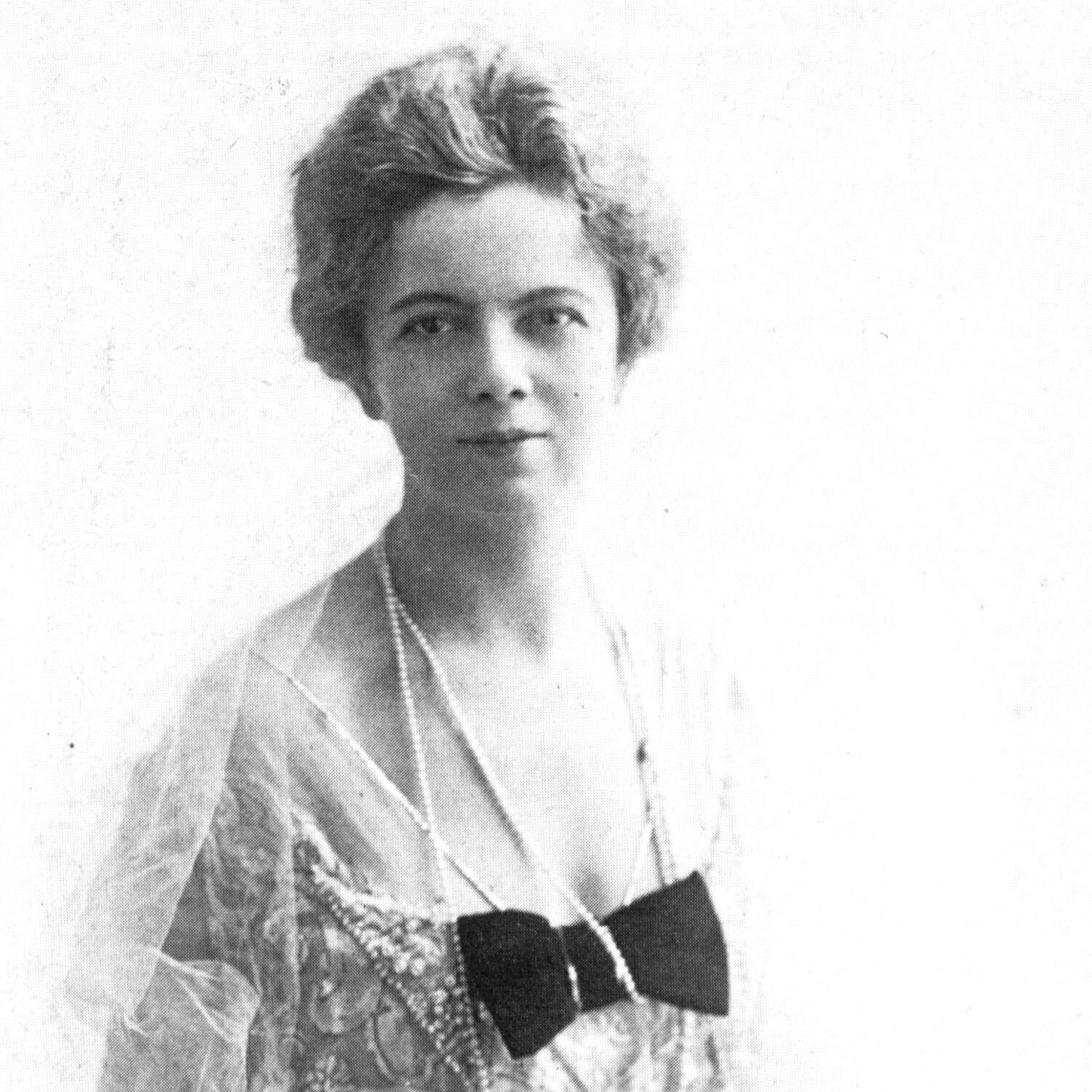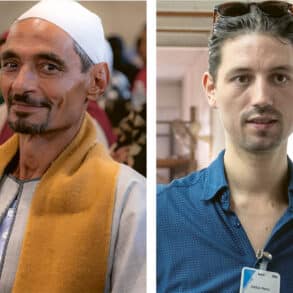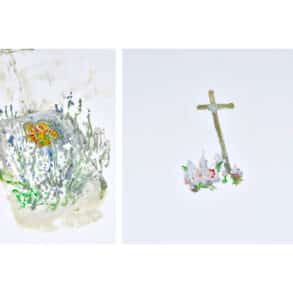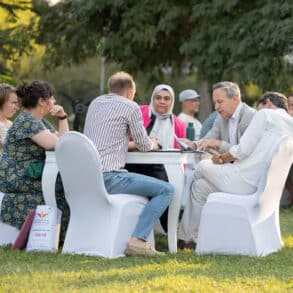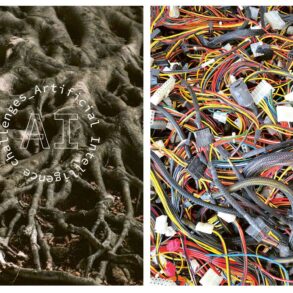In his memoirs, Witness: The Story of a Search,1 the British mathematician and spiritual teacher John G. Bennett (1897–1974) recounts how his spiritual search began after an intense near-death experience at the end of the First World War.
After being seriously wounded, Bennet spent time recovering in England, where he was able to take part in a course in Turkish offered by the War Office. In 1919, he was sent to Constantinople to join the British occupying army, and he soon held a leading position in British intelligence there, mainly due to his brilliant knowledge of Turkish.
Bennett vividly describes the old Constantinople, which he clearly perceived to be on the brink of a major upheaval. His inner search first led him to the dervish orders, which made a great impression on him. It became clear to him how strongly dervish Sufism was still alive as a schooling path in Turkey at the time, when, during a visit by the Turkish Minister of Justice, he recognized the minister as one of the dancing dervishes he had seen a few days earlier.
Two people had urged him to meet Prince Sabaheddin. He took this as a sign of destiny and visited the prince, who was to become the first person to awaken in him “a sense of a spiritual reality.”2
Prince and Democrat
Sultanzade Mehmed Sabaheddin, born on February 13, 1879, in Constantinople and a sociologist by training, was a grandson of Sultan Abdulmejid I (1823–1861). Although he was a member of the Ottoman ruling dynasty, he campaigned for a democratic and socially reformed Turkey, in which the unique initiative of the individual could find its place. In the course of his life, he was repeatedly forced to leave Turkey due to the political situation. Finally, like all members of the House of Osman, he was banned from Turkey by law after Atatürk’s seizure of power in 1924. He lived in Neuchâtel, Switzerland, until his death in 1948.
It was 1920 when Bennett first visited the prince at his villa in Kuruçeşme overlooking the Bosphorus. From then on, he came to dinner every week to have long conversations with the prince: “Sabaheddin was one of the smallest and slenderest men I have ever seen, but with such an immense dignity . . . .”3 The prince tried to fill the gaps in the young man’s education with recommendations of literature. One of the first books he gave Bennett to read was Schuré’s The Great Initiates.
The young Brit was deeply impressed by the way Sabaheddin spoke about “Christ in a way no one had ever spoken to me before. He had, of course, been brought up as a Muslim. He had studied Eastern religions—especially Buddhism; but he had found no satisfaction except in the contemplation of Jesus Christ. His face lit up as he spoke of the love of Jesus for mankind. I could see that Divine Love was a reality for him, whereas it had not been a reality for the Christian priest who had tried to teach me the meaning of the Christian faith.”4
John Bennett met two people at Sabaheddin’s who were to become of great importance in his life: the British woman Winifred Beaumont (1875–1958), who was 22 years his senior, grew up in India and was to become his second wife, and the Greek-Armenian occultist George I. Gurdjieff (1866?–1949), whose student he later became. After he and Beaumont left Constantinople in 1922, they never met the prince again. Allegedly, according to Bennett, “In Switzerland, [Sabaheddin] took to drink and died in great poverty.”5
Sabbaheddin’s “Personal Friend”
It is astonishing that Bennett also writes: “Sabaheddin spoke to me of Rudolph Steiner, who was his personal friend, and of the teachings of Theosophy and Anthroposophy.”6 So, Rudolf Steiner was a personal friend of this Turkish prince?
In fact, it is clear from several letters and cards written in French by Prince Sabaheddin to Marie Steiner that he got to know Rudolf Steiner and had personal conversations with him. In the letter of September 12, 1919, he writes: “Recently, when I was with our friends, we spoke so often about you and our dear Master. I would be grateful if you would convey to him my feelings of reverence and deep gratitude. If I did not have to stay here for another three or four weeks, I would have come immediately to the Doctor and to you . . . . Perhaps, I shall have the opportunity of seeing you again before my probable departure for my country . . . .7 I shall certainly pass on our good memories to Mr. Locking as soon as I have the pleasure of seeing him.”8
Presumably, the prince met Rudolf Steiner at the International Conference of the League of Nations in Bern, Switzerland, in March 1919, and had heard his lecture there.9 On the one hand, he was a spiritual seeker, but one can also imagine that he would have been stimulated by the idea of social threefolding in his search for the societal modernization of his country and the high estimation of private initiative, should he ever have had the opportunity to shape politics in his country.
That Sabaheddin was also in Dornach at least once is proven by an undated card that he wrote to House Pyle, presumably after Rudolf Steiner’s death, as the content of the card suggests: “Prince M. Sabaheddin, currently in Dornach, makes it his very pleasant duty to pay his respects to Mrs. Marie Steiner and at the same time to express his deep gratitude and admiration for the wonderful spiritual œuvre to which she has thankfully devoted herself.”
A third card was written in Beatenberg, Switzerland, in 1940, eight years prior to Sabaheddin’s death. It shows that he continued to engage with Rudolf Steiner’s work: “On the subject of a Turkish translation of the revered Master’s book How Does One Attain Knowledge of the Higher Worlds, I would like to ask you to reserve a few moments of conversation for me . . . . I propose therefore to come to your house on Friday, the 7th of this month, at 5 p.m. However, if this day does not suit you, please be so kind as to tell me another day. If you do not reply, I will arrive at Chalet Heimat on the date indicated.”10
“My Young Friend Needs Your Help”
Remarkably, there are also two letters (also written in French) from Winifred Beaumont in the Rudolf Steiner Archive [Dornach], both of which were written around the turn of the year 1922/23. She first writes to Marie Steiner from Lausanne on December 17:11
I am writing to you because I thought I remembered that Dr. Steiner had a private secretary next to him. . . . We come from Constantinople, where I often saw Prince Sabaheddin. He told us about Dr. Steiner and lent us some books.
Then, Winifred Beaumont expresses the wish “to see the Master, in order to talk with him about serious things—above all about a plan—an idea—that we must establish certain schools of research and observation—Prince Sabaheddin has thought a lot about this project.” She goes on to say that they would have liked to meet Rudolf Steiner in London (he had been there from November 8–21, 1922), “but, we learned that he would arrive a few days after we left.” She asks that “Dr. Steiner give us a day” on which they could come to Dornach for a visit. And she concludes the letter with the fervent request: “We have such a great wish to see him—I and a young friend of the prince—We hope that our wish will be fulfilled.”
The “young friend of the prince” was none other than John Bennett. He and Winifred Beaumont were in Lausanne, where negotiations on a peace treaty for the Turkish-Greek conflicts had been underway since November 30, 1922, on the initiative of the League of Nations.12
John Bennett could, therefore, have met Rudolf Steiner at that time. But, apparently, there was no reply from Dornach, so Winifred Beaumont wrote again on January 1, 1923, now directly to Rudolf Steiner: “Dear Master. Let us come to you! My young friend is traveling to Constantinople—and he needs your help. I have already written to your secretary—forgive my insistence and please give us an appointment soon. The departure will probably take place in a few days. Yours sincerely, Winifred Beaumont.”
Beaumont thus had the perception at the time that her “young friend” was in urgent need of Rudolf Steiner’s help. But, this card was written the day after the Goetheanum fire—and one can imagine that Rudolf Steiner could not and did not want to give an answer or receive visitors in this situation.
Instead, John Bennett, who had already heard various lectures by the Gurdjeff disciple P. D. Ouspensky in London, went to the Gurdjieff Institute in Fontainebleau, France, for a weekend at the beginning of January 1923, where closer relations were established between him and Gurdjieff.13
How would his destiny have developed if Bennett, who was undoubtedly spiritually gifted, had gone to Dornach instead and been able to talk to Rudolf Steiner?
Translation Joshua Kelberman
Title image Winifred Beaumont
Footnotes
- J.G. Bennett, Witness: The Autobiography of John Bennett (Charles Town, WV: Claymont, 1983). First publication in 1962 as Witness: The Story of a Search. I owe the reference to Bennett’s encounter with Sabaheddin to Wolfgang Tomaschitz.
- Ibid., p. 93.
- Ibid., 40.
- Ibid., 42–43.
- Ibid., 93.
- Ibid. 41.
- In 1919, he returned to Turkey once again full of hope that he would be able to realize his plans for his country.
- The letters are in the Rudolf Steiner Archive, Dornach.
- Rudolf Steiner, Die Befreiung des Menschenwesens als Grundlage für eine soziale Neugestaltung [The Liberation of the Human Being as the Basis for Social Reorganization], CW 329 (Dornach: Rudolf Steiner Verlag, 1985), including lectures in Bern on Mar. 11 & 17, 1919. The International Conference of the League of Nations [Internationale Völkerbunds-Konferenz] took place in Bern from March 7–13, 1919.
- Nothing is known about whether this translation came about.
- She writes from the Hotel Cecil in Lausanne, while Bennett writes in his memoirs that they were staying at the Hotel Beau Rivage at the time. Bennett mentions nothing about an intended visit to Rudolf Steiner; cf. footnote 1, p. 102.
- See footnote 1, p. 101f.
- See footnote 1, p. 103f.

